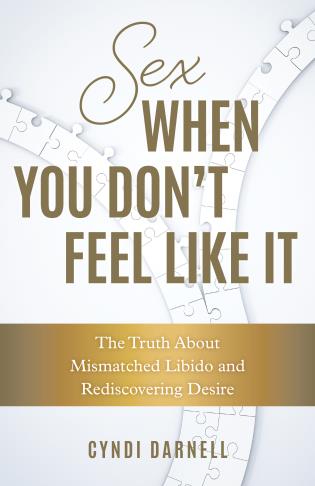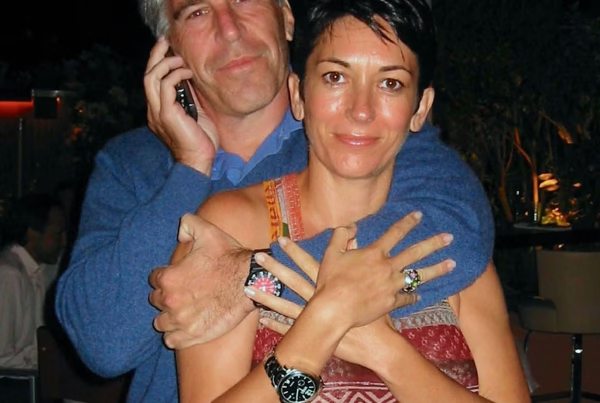Have you ever asked yourself, or your partner, during relationship counseling “Why do you have sex?” I am not talking about the urge of getting into someone’s pants but the reason, or purpose, that makes those physical encounters meaningful and/or memorable. If you have, or even if haven’t, keep Sex When You Don’t Feel Like It by Cyndi Darnell on your reading list. Cyndi Darnell’s podcast The Erotic Philosopher has been one of my favorites for a while: smart, witty, real, and honest about our rich sexual condition. While the podcast is for the many of us who think about sex professionally the book is for everyone Dr. Darnell’s first book bridges the gap between theory and practice – bringing together academic frameworks with simple reflection exercises for the mainstream reader. It makes recent core discoveries in the world of sexology and psychology accessible to all. Sex When You Don’t Feel Like It is for you if you started Jack Morin’s The Erotic Mind but left it at the first chapter; if you went through Emily Nagoski’s Come As You Are but were still confused about The Dual Control Model; if you have watched Betty Martin and Robin Dalzen’s Wheel of Consent YouTube videos but are still not clear on how to apply the 3 minute exercise to real life. It simplifies the most important concepts within the field of sexology and psychology seamlessly for beginners.

Sex When You Don’t Feel Like It is a revelation about the nature of f social conditioning, how it affects our physical intimacy, and our relationships. It focuses on the role of conditioning in what we have learned about gender, sex, pleasure, desire and romantic love. Dr. Darnell reminds us of the history of romance and how this ideology has socialized us to overload modern-day relationships with expectations and responsibilities like never before. And when we start thinking about what this all means through her ‘Time for Reflection’ sections, it becomes very personal. It is not a chapter in a book anymore but us questioning what we believe and why. The big takeaway is that the acceptance of romance as a norm, makes us “connect desire to love although they can be very different ideas in our head”. There often is a lot of shame when we desire someone we don’t love, and vice-versa. So is there an opportunity to see romance as a mood instead of an essential relationship goal? Can we start normalizing love and desire as separate experiences? Do we really need to demonise infidelity and cheating to the point of ending lifelong meaningful relationships?
 The chapter on the complexity of desire is the most compelling one. It makes us realize that we rarely ask ourselves why according to societal norms, heterosexual couples deserve desire more than the rest of us. It makes us ponder why we barely notice that, according to the same norms, women can be desired but not desire. In the South Asian context it makes us notice that, we almost ignore how much we are denied desire and pleasure to focus on education, career and other life achievements. And all this occurs exactly during our teenage years, when we are moving from “sexual beings to erotic ones”. When our hormones are transforming our bodies. When we start interpreting messages from the external world that are coming to us via touch, sight, emotions and putting together the pieces of what sex means to us. “All this numbing of desire makes us disconnected from our bodies from a very young age”, explains Dr. Darnell. It makes us reach out to unrealistic resources such as porn, allowing other people to define what sex needs to look and feel like to us.
The chapter on the complexity of desire is the most compelling one. It makes us realize that we rarely ask ourselves why according to societal norms, heterosexual couples deserve desire more than the rest of us. It makes us ponder why we barely notice that, according to the same norms, women can be desired but not desire. In the South Asian context it makes us notice that, we almost ignore how much we are denied desire and pleasure to focus on education, career and other life achievements. And all this occurs exactly during our teenage years, when we are moving from “sexual beings to erotic ones”. When our hormones are transforming our bodies. When we start interpreting messages from the external world that are coming to us via touch, sight, emotions and putting together the pieces of what sex means to us. “All this numbing of desire makes us disconnected from our bodies from a very young age”, explains Dr. Darnell. It makes us reach out to unrealistic resources such as porn, allowing other people to define what sex needs to look and feel like to us.
 As a society, we are slowly busting myths around sex but the book rightly points out that ideas such as “foreplay being a precedence to the actual real act” still live as truths and norm in our heads. Most of us know that desire can be induced by mental and emotional context but we at the same time have so many expectations of arousal being spontaneous. We think we need to be always turned on and while some of us are, the rest of us are trying to get into ‘the mood’ by following sex column advice. I cannot agree more with Dr. Darnell on the fact that: “knowing why we want sex is more effective than trying to get in the mood”, especially for those in long-term relationships. Dr. Darnell’s Triangle of Satisfaction Model points out that to be sexually satisfied is not enough to get in the mood. We need to acknowledge that physical intimacy is part of our playtime and that playtime is very important to live healthy and fulfilling lives. Is it surprising to hear that having fun is good for us? We need to be curious about ourselves and our partner/s because “when we choose curiosity over habit, a new normal has the chance to emerge”. We need openness and willingness to try, or the drive to make any change.
As a society, we are slowly busting myths around sex but the book rightly points out that ideas such as “foreplay being a precedence to the actual real act” still live as truths and norm in our heads. Most of us know that desire can be induced by mental and emotional context but we at the same time have so many expectations of arousal being spontaneous. We think we need to be always turned on and while some of us are, the rest of us are trying to get into ‘the mood’ by following sex column advice. I cannot agree more with Dr. Darnell on the fact that: “knowing why we want sex is more effective than trying to get in the mood”, especially for those in long-term relationships. Dr. Darnell’s Triangle of Satisfaction Model points out that to be sexually satisfied is not enough to get in the mood. We need to acknowledge that physical intimacy is part of our playtime and that playtime is very important to live healthy and fulfilling lives. Is it surprising to hear that having fun is good for us? We need to be curious about ourselves and our partner/s because “when we choose curiosity over habit, a new normal has the chance to emerge”. We need openness and willingness to try, or the drive to make any change.

Sex When You Don’t Feel Like It also highlights our obsession of being normal, especially when we think and talk about sex. As if sex was a disease of the body that takes abnormal mutations through our fantasies and desires. It’s almost a visceral discomfort with pleasure and its intimate and personal forms. Moreover, most of us don’t talk about our fantasies. The truth is that the less we communicate about them, the more unique and abnormal they feel. When we start opening up with others through community interactions we feel a huge burden come off our chest. The lucky ones find more communities along the way, such as the queer, the kinky and the polyamorous, while others remain in the closet and let the feeling of abnormality seep into their daily lives and relationships.
 But there is a lot of hope in Dr. Darnell’s first publication: we can rewire our brains and our belief systems. The book provides practical exercises to connect to the body and lists of questions we should all ask ourselves. Because ,as she rightly points out, “sex is a relationship to life”. Do we allow pleasure into our lives? Do we allow desire and to be desired? Do we allow playfulness? And the best part is that, there is absolutely no problem if none of this is sexual.
But there is a lot of hope in Dr. Darnell’s first publication: we can rewire our brains and our belief systems. The book provides practical exercises to connect to the body and lists of questions we should all ask ourselves. Because ,as she rightly points out, “sex is a relationship to life”. Do we allow pleasure into our lives? Do we allow desire and to be desired? Do we allow playfulness? And the best part is that, there is absolutely no problem if none of this is sexual.





